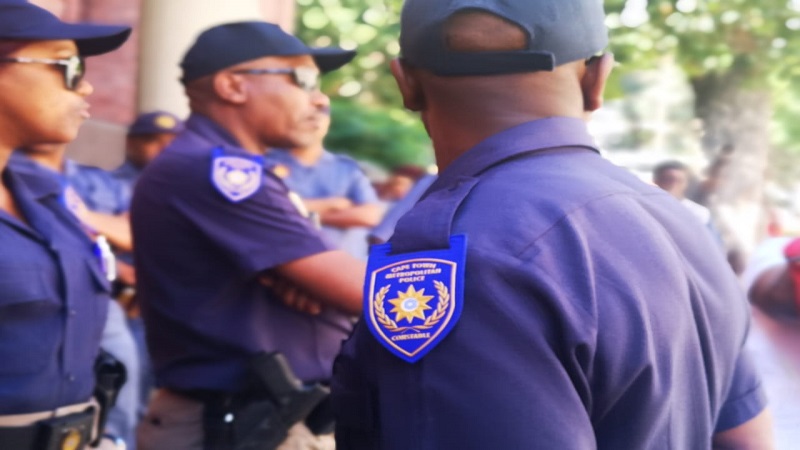The Western Cape Police Ombudsman is investigating the South African Police Service (SAPS) inability to handle the reporting of domestic abuse cases. A notice was published in the Provincial Gazette on Friday calling on public comment on the matter.
It comes after a local NGO accused the SAPS of being unable to provide adequate support to members of the community who are victims of crime, as prescribed in SAPS Victim Empowerment Program (VEP).
The complaint cited issues including insufficient victim support, experiencing secondary trauma when approaching police stations, often having to wait for long periods of time to be assisted and being forced to speak to police officers in public.
A surge of murders had sparked mass anti-gender-based violence protests in 2019 where SAPS was slammed for their handling of rape and abuse cases. Community safety MEC, Albert Fritz, highlighted the province as a problem area in this regard, after a survey uncovered shocking non-compliant with the Domestic Violence Act (DVA)
Fritz pointed out that the most prevalent forms of domestic violence reported between July and December 2017 were; physical abuse (46%) and emotional, verbal and psychological abuse (29%).
According to Fritz, of the total 34 209 incidents reported in 2018/19, the majority were reported in Mitchells Plain (3155 cases), Delft (2071 cases), Harare (1716) and Knysna (1620)
Western Cape Police Ombudsman spokesperson Johan Brandt said the concern wasn’t limited to the concrete jungle of the province but also to a more rural area.
“We received a complaint from a well-known non-governmental organization which complains about the level of support to victims of crime not only at police stations in the Metropole but also at some of the rural stations. That is why our investigations will be wider and not only limited to the Metropole,” said Brandt.
“We subsequently decided, because of the allegations made in the complaint, that we should issue the notice to ask for comments on this specific matter that SAPS isn’t giving the level of victim support they’re supposed to be,” noted Brandt.
Brandt urged those who would like to comment or add to the complaints they’re investigating; to be specific around the date, time, police station, SAPS member(s) involved, case number and brief comments about the alleged incidents. The findings will be submitted to the Western Cape Provincial Commissioner for action.
Brandt explained that when reporting abuse you have the right to be:
- provided with a case number immediately
- interviewed for in private if you should request it,
- updated with progress of the investigation in the matter
- served promptly and professional
The spokesperson urged the public to provide accurate, detailed information when submitting comments. Due to the nature of the investigation, the comments may be submitted anonymously.
“We urge all concerned and affected citizens to contact our office to share their experiences. We ask that when communicating to our office, you include as much information as possible. With specific reference to the date, time, police station applicable, SAPS member(s) involved, SAPS case number applicable and brief comments about the alleged incidents,” read a statement by the WC Police Ombudsman’s office.
Brandt emphasised that the more detail authorities have to work with, the stronger the lead will be to investigate.
“If people submit written representations to us, they must please give us the details. Remember, we are doing an investigation and the purpose of that is to establish the truth. If people don’t give us that kinds of information then we can’t verify with the SAPS,” he reiterated.
“At one stage I know there was CCTV cameras installed. That way we can even pick up if people say ‘I visited that specific police station on the 7th of March just after 10 oclck at night.’ We can look at the footage and get the people that was on duty to see whether they did act according to the National structures,” explained Brandt.
The police ombudsman explained why it was approached:
“We investigate service delivery complaints, for example when you’re not happy with a service you received from the SAPS or in terms of the South African Constitution; where there’s a breakdown in the relations between the SAPS and a specific community. We investigate and we then make a recommendations to the Provincial Commissioner of our findings and possibly what can be done to address (these).”
Section 206, subsection 3, of the Constitution of the Republic of South Africa 1996, as mentioned above, states:
‘State of national defence 203. (1) The President as head of the national executive may declare a state of national defence, and must inform Parliament promptly and in appropriate detail of—
(a) the reasons for the declaration;
(b) any place where the defence force is being employed; and
(c) the number of people involved
(2) If Parliament is not sitting when a state of national defence is declared, the President must summon Parliament to an extraordinary sitting within seven days of the declaration.
(3) A declaration of a state of national defence lapses unless it is approved by Parliament within seven days of the declaration
Contributions to the investigation can be submitted via the following details:
Hand deliveries to offices: 6th floor, Waldorf Building, Saint Georges Mall, Cape Town
Post: Private Bag x9043 Cape Town
Email: ombudsman@wcpo.gov.za
Fax: 021 483 0660
The deadline is on the 17 April 2020.






 WhatsApp us
WhatsApp us 

